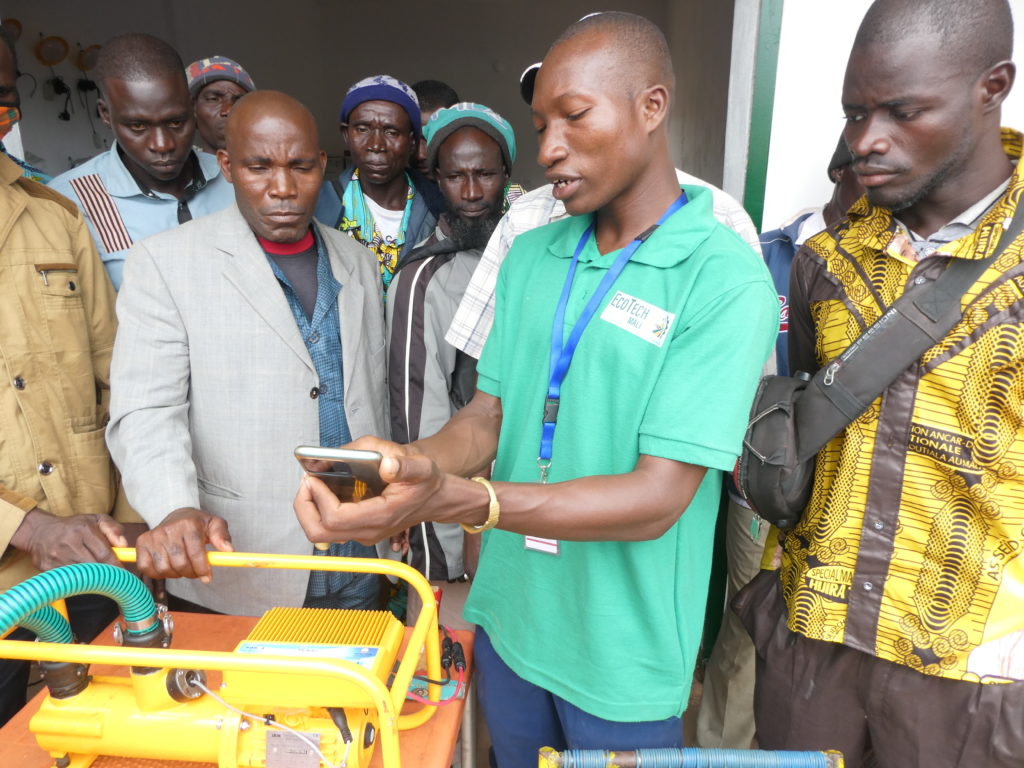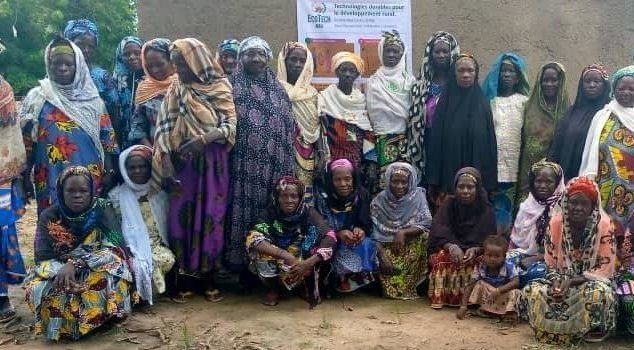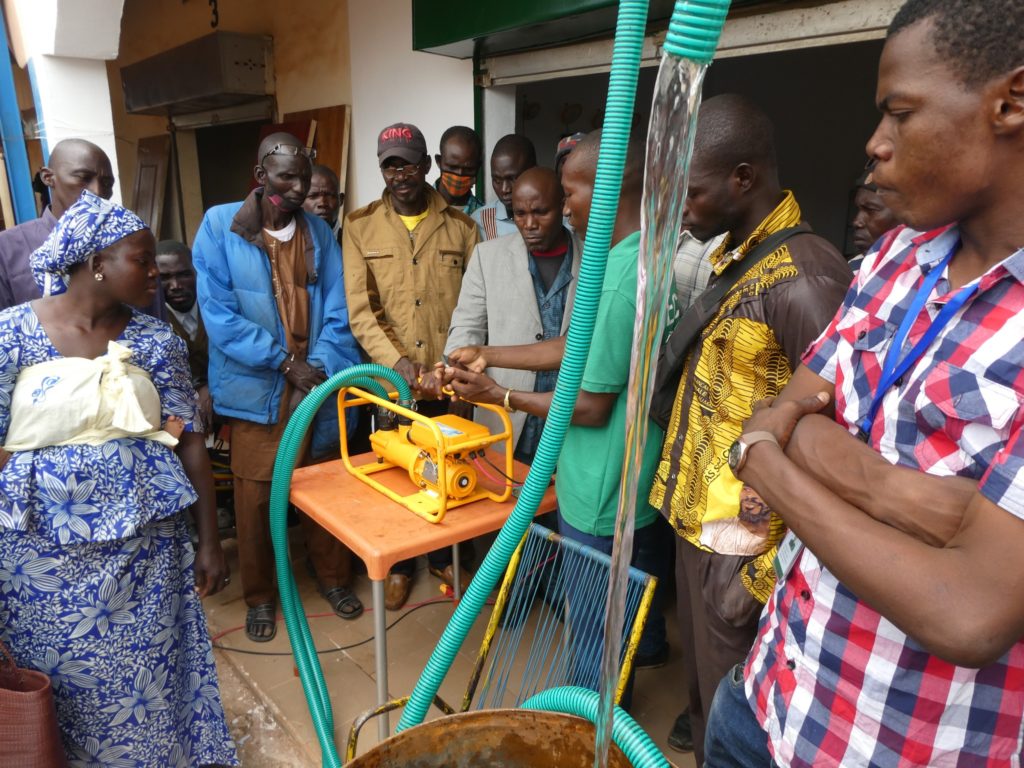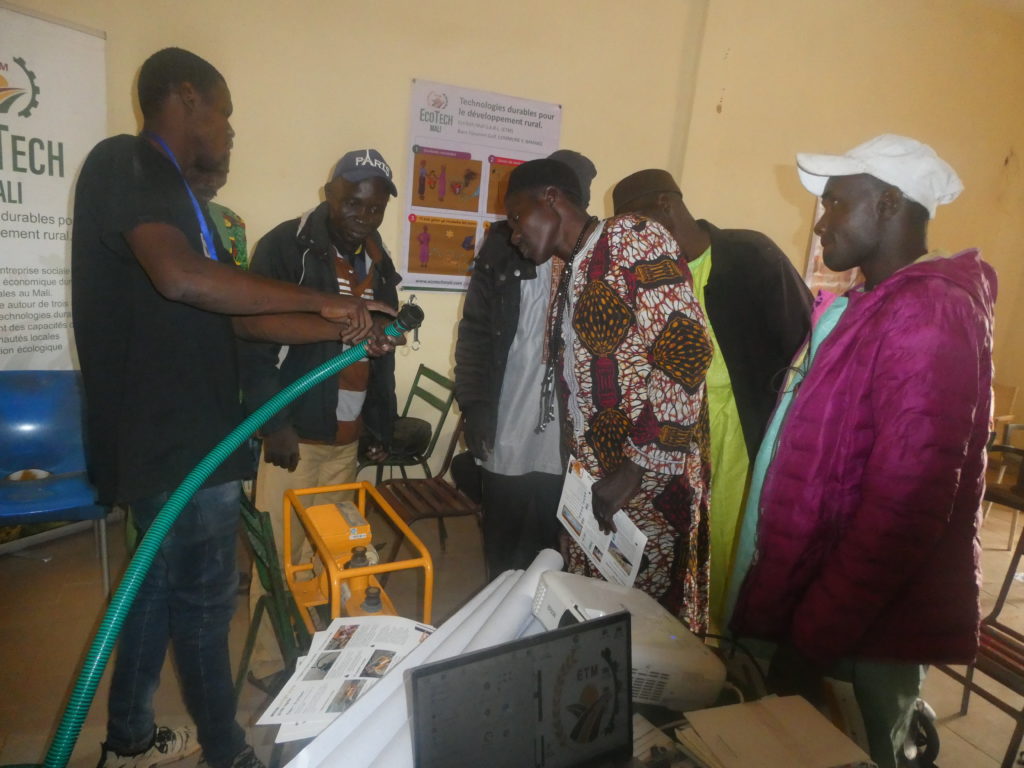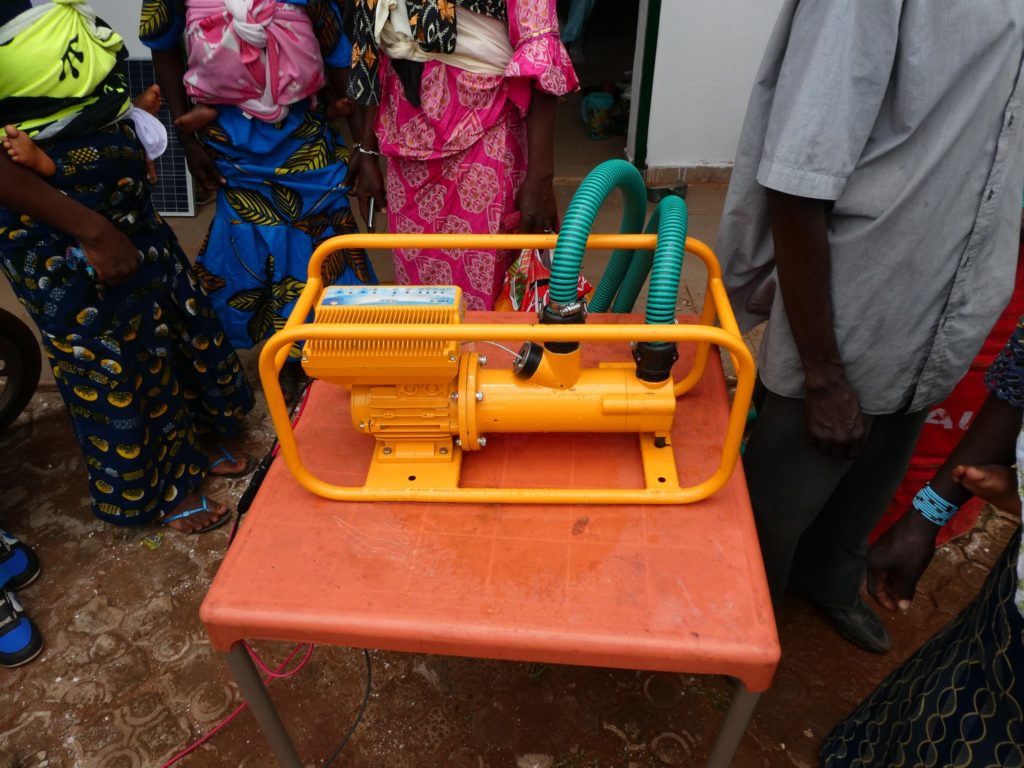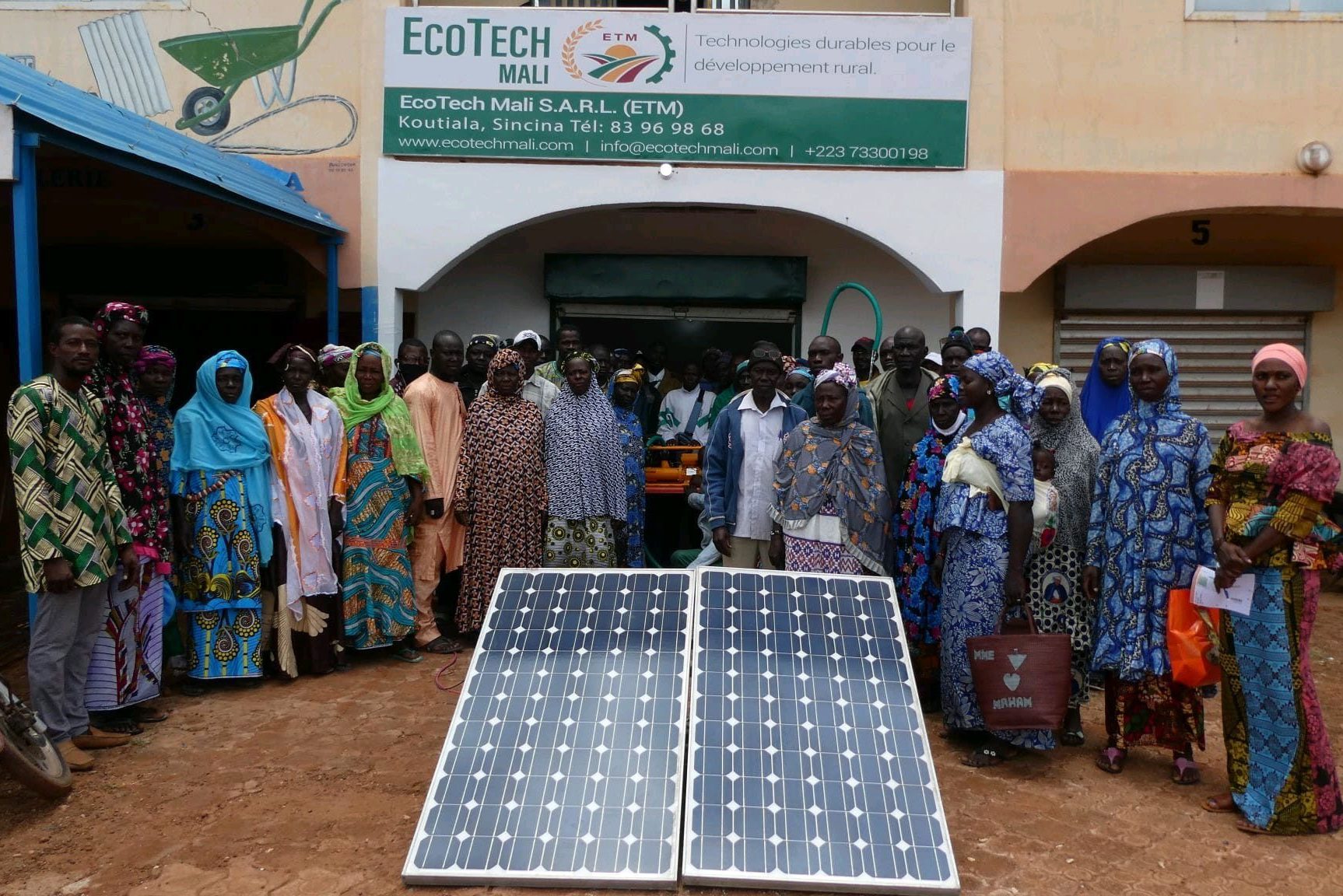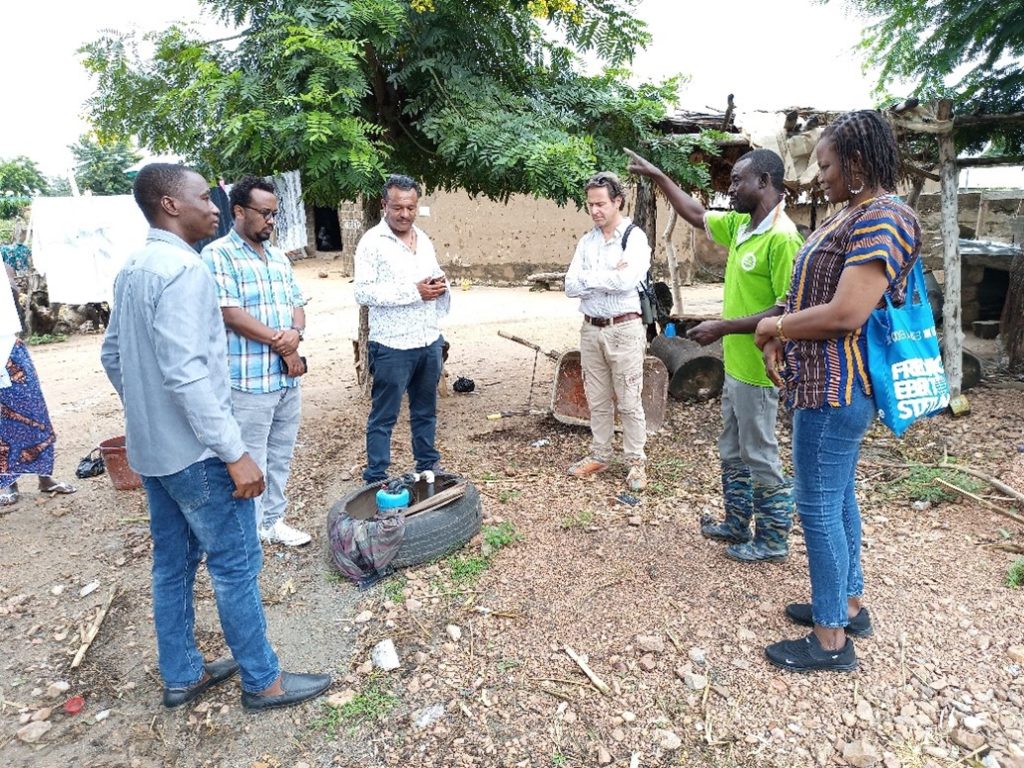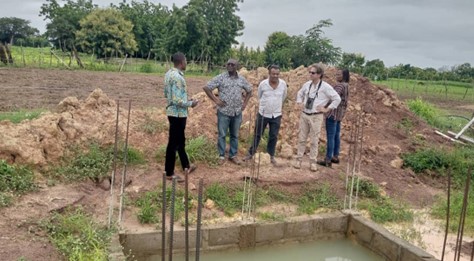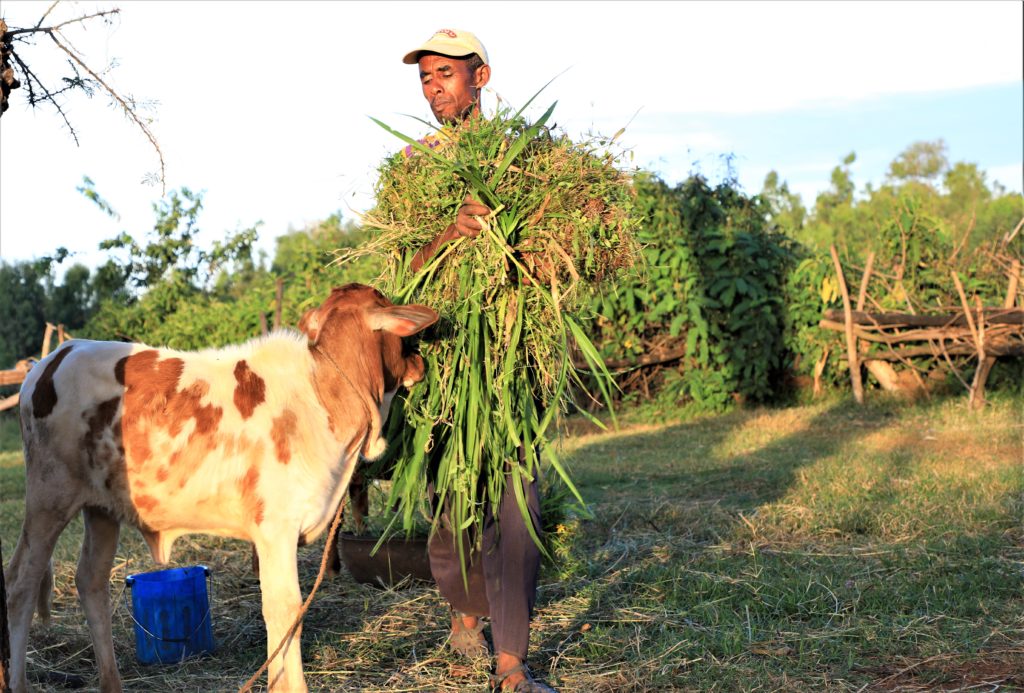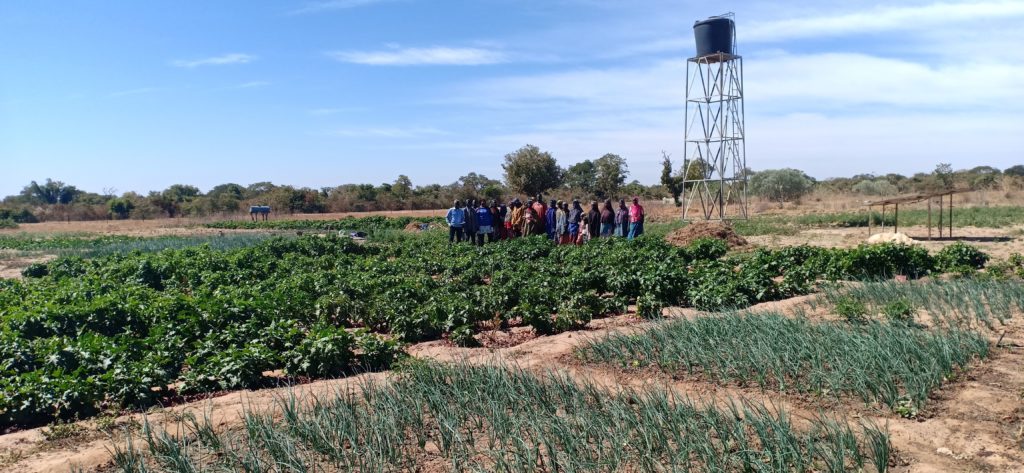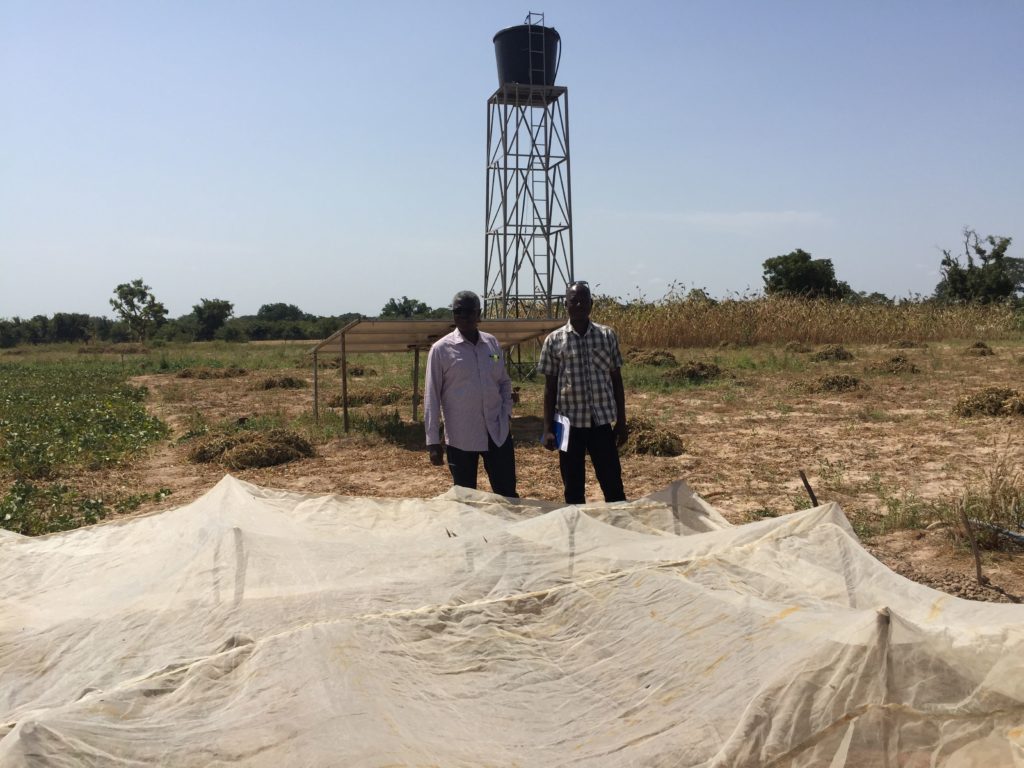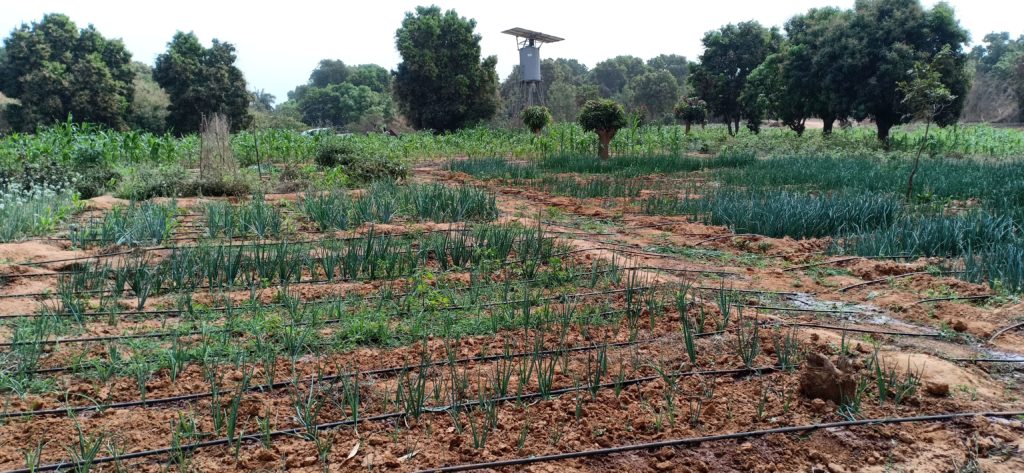by Dawit Mekonnen
Irrigation developers historically aimed to achieve water productivity and efficiency, and increase crop yields for food security, but this approach to irrigation may be slowly changing. A growing body of evidence is increasing our understanding of the contributions of small-scale irrigation development, that is irrigation technologies directly acquired by farmers for their own plots, not only to water security but also to food security and nutrition security. With a global food and nutrition crisis about to enter its fourth year, this year’s theme for World Food Day, “Leave NO ONE behind” calls upon us to look outside traditional food and nutrition security interventions—that are insufficient to reduce hunger and malnutrition in the face of today’s multiple, interlinking crises—to consider a broader set of nutrition-sensitive actions that can reach many and grow crisis resilience.
Since 2014, the Feed the Future Innovation Lab for Small Scale Irrigation (ILSSI) with partners has been developing the most comprehensive evidence to date on the linkages between irrigation and nutrition outcomes of households, women, and children in rural Africa. The studies, implemented by the International Food Policy Research Institute with a range of partners, examine the potential and impact of small-scale irrigation as an intervention to grow nutrition under interlocking crises.
Building evidence through case studies
Irrigation can affect nutritional outcomes through multiple pathways, including through changes in production, increased income, improved water supply (e.g. WASH), and through affecting women’s empowerment. In addition to identifying pathways and developing frameworks, ILSSI studies have documented the relationships between irrigation and nutrition drawing on intra-household surveys from Ethiopia, Ghana, Mali and Tanzania. A longitudinal study of socioeconomic status, energy and nutrient intakes and hemoglobin concentration in ILSSI sites in Ethiopia, implemented in partnership with Feed the Future Innovation Lab for Collaborative Research on Sustainable Intensification (SIIL)[RC(1] , showed a high seasonal variation in women’s diet, and the contribution of irrigation in improving diets and reducing their seasonality. Compared to non-irrigators, women in irrigating households had higher consumption of Vit-C and Calcium during the irrigation season, which helps to address a gap in data on linkages between water insecurity and micronutrient deficiencies.
But not only women in irrigating households show improved diets, but also children. A study drawing on panel data of irrigators and non-irrigators in ILSSI sites of Ethiopia and Tanzania showed that children in irrigating households in Ethiopia had better weight-for-height (WHZ) scores–0.87 standard deviations higher—than children in non-irrigating households. Confirming the resilience contribution of irrigation, the study also noted that in Tanzania, higher WHZ-scores were found in children under-five years of age in irrigating households who reported having experienced a drought in the 5 years preceding the survey.
In Northern Ghana, an ILSSI study found only a modest difference in the household dietary diversity score (HDDS) between irrigators and non-irrigators, but more significant increases in the consumption of animal source foods as well as significant differences in the consumption of fruits and vegetables, sugar and honey. As other studies have highlighted, consuming animal source foods have strong positive impacts on nutritional security, particularly of children.
In Mali, an ILSSI study supported by the USAID Bureau for Humanitarian Assistance (BHA) showed that irrigators are more likely to grow vegetables, fruits, and roots and tubers, which may help supply more nutrient-dense foods to the market for broader nutritional impact in rural communities. In addition, at household level, households with irrigation had significantly better dietary quality and diversity than non-irrigators, and data showed irrigators are more food-secure than non-irrigators. Irrigation also changed land use and labor allocation, as irrigated plots were more intensively used, with 22% and 17% higher use of improved varieties/inorganic fertilizers; 5 times the level of family labor input and more than 2 times the level of hired labor input compared to non-irrigated plots, showcasing irrigation’s contribution to growing rural employment, particularly in the lean season as well as its potential to reducing deforestation and land expansion.
Irrigation and resilience to climate change and weather extremes
Water and food insecurity are interlinked, worsening hunger where farmers rely on rainfed production and cannot access irrigation. Droughts cause backsliding from development gains and push people deeper into poverty. Irrigation dampens negative drought impacts. The ILSSI Ethiopia study found that among households who reported recent experience with drought, women in irrigating households had higher dietary diversity scores compared to women in non-irrigating households. In Tanzania, women in irrigating households also had higher dietary diversity scores (WDDS) compared to women in households without irrigation. Importantly, the impact of irrigation on women’s dietary diversity was more than doubled among households facing drought. The authors also showed that among households in Tanzania who reported having faced a drought shock, irrigating households had higher HDDS compared to non-irrigators. This study highlighted the ways in which irrigation contributes to climate adaptation and resilience, and reduces nutrition inadequacy during climate extremes.
Recent research has further documented the role of irrigation during the 2016 El Nino Southern Oscillation (ENSO) drought in Ethiopia. Among rainfed farmers, the 2016 ENSO decreased net crop income by 37%: area cultivated reduced by 8% and the share of harvest sold declined by 10%. Overall, this worsened HDDS by 3%. However, irrigators affected by the ENSO event maintained their net crop income, area cultivated, share of harvest sold, and did not suffer from reductions in HDDS. The study provided further evidence that irrigation is a key climate smart agricultural intervention that improves the resilience of farming households in the face of climate extreme events.
Providing guidance for irrigation investments that improves water, food and nutrition jointly
A collaboration between IFPRI and the World Bank summarized the ILSSI findings in a guidance on improving the nutrition sensitivity of irrigation and agricultural water management directed at World Bank project managers, governments, NGOs and other investors. The guidance provides entry points and indicators for monitoring progress on nutrition-sensitive irrigation. Videos in English and French language provide a quick overview of the guidance and are being used by next users interested in addressing joint climate, water and nutrition crises. With support from USAID BHA, the guidance is currently localized to the Malian context with the help of local nutrition and irrigation experts.
The studies provide a comprehensive body of evidence of the strong effect of irrigation for households’ economic access to food and on nutritional benefits for women and children. Based on this evidence and associated guidance, the goals of irrigation have broadened beyond water productivity and yield gains—toward integrated investment approaches in food and nutritional security that might help get us closer to this year’s World Food Day theme of Leave NO ONE behind. By recognizing the interlinkages, nutrition-sensitive irrigation programs can help realize the full potential of small-scale irrigation interventions – and allow them to go beyond higher yields and water productivity to grow food and nutrition security– while also actively working toward avoiding adverse impacts on human health and nutrition.

